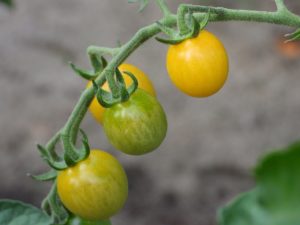“Fertilizer People” Help Us Grow

In the past, we often picked tomatoes into October. Not this year. It’s the worst I’ve seen in an on-and-off practice of nearly 40 years.
I could say we plucked a dozen tomatoes, but only if I counted the half dozen grape variety we managed to harvest before that plant withered.
Judging by similar laments on Facebook, we weren’t alone. Many friends questioned if others’ gardens were as poor as theirs this year.
Given these comments, I doubt fertilizer would have helped ours.
Smelly Folks
There’s another kind, though, that, even if it couldn’t rescue our gardens, will help us grow personally. I call this brand “Fertilizer People.”
True confession: that was the title on a devotional in a book I recently edited for Brian Catanella, a businessman from Philadelphia. He hopes to self-publish his collection of 40 reflections later this year.
While it had been awhile since I worked on this entry, I thought of it recently when I encountered a person I would tag with that label.
As Brian notes in the devotional, many readers likely already know the kind of people’s he’s talking about:
- The rude colleague whose email subject line makes you shudder, knowing their note will likely be full of criticism and unreasonable requests.
- The neighbor who stops by to share a long-winded story about an all-important issue, never pausing for breath or acknowledging you might have something to say.
- The relative who is always ready to ask for a handout and never feels it’s necessary to contribute something to the gathering themselves.
To that I would add, the guy who rarely contributes much to a conversation, making me wonder if he mainly wants to hear his own voice.
Uncomfortable Truth

I remember the friend whose body language made it apparent that she had heard enough of my readily-offered opinions and views on a variety of subjects one weekend.
She never said anything, but she didn’t need to; I got the message.
Such encounters illustrate a truth about Christian life: grace is an essential element.
Without it, we can’t put up with others’ peccadilloes, personality quirks, and irritating habits. Nor they ours.
I especially like what Brian wrote about how “though the fertilizer such folks bring into our lives may smell pretty horrid at first, we often grow and deepen our Christ-likeness because of them.
“The fruit of things like love, peace, patience, kindness, and goodness often flower in the midst of stomach-turning encounters that make us long for peace, serenity, and stability.”
Overlooking Flaws
We can all add an “amen” to that. I think a primary reason behind so many church splits through the years is the failure of people to get to really know others. And, to love them despite their flaws.
Let’s face it, if one or both spouses in a marriage aren’t willing to forgive and overlook the other’s faults, their relationship is going to die on the vine, if not head for divorce court.
The same is true in our Christian walk. When we get to really know people and all their shortcomings, it leaves us with a basic choice: 1) be forgiving and extend grace to others, and hope they do the same for us, or 2) walk away.
Yeah, their “stuff” may not smell good. But it is how we develop the fruit of the Holy Spirit. Peace forged in the crucible of daily life.


